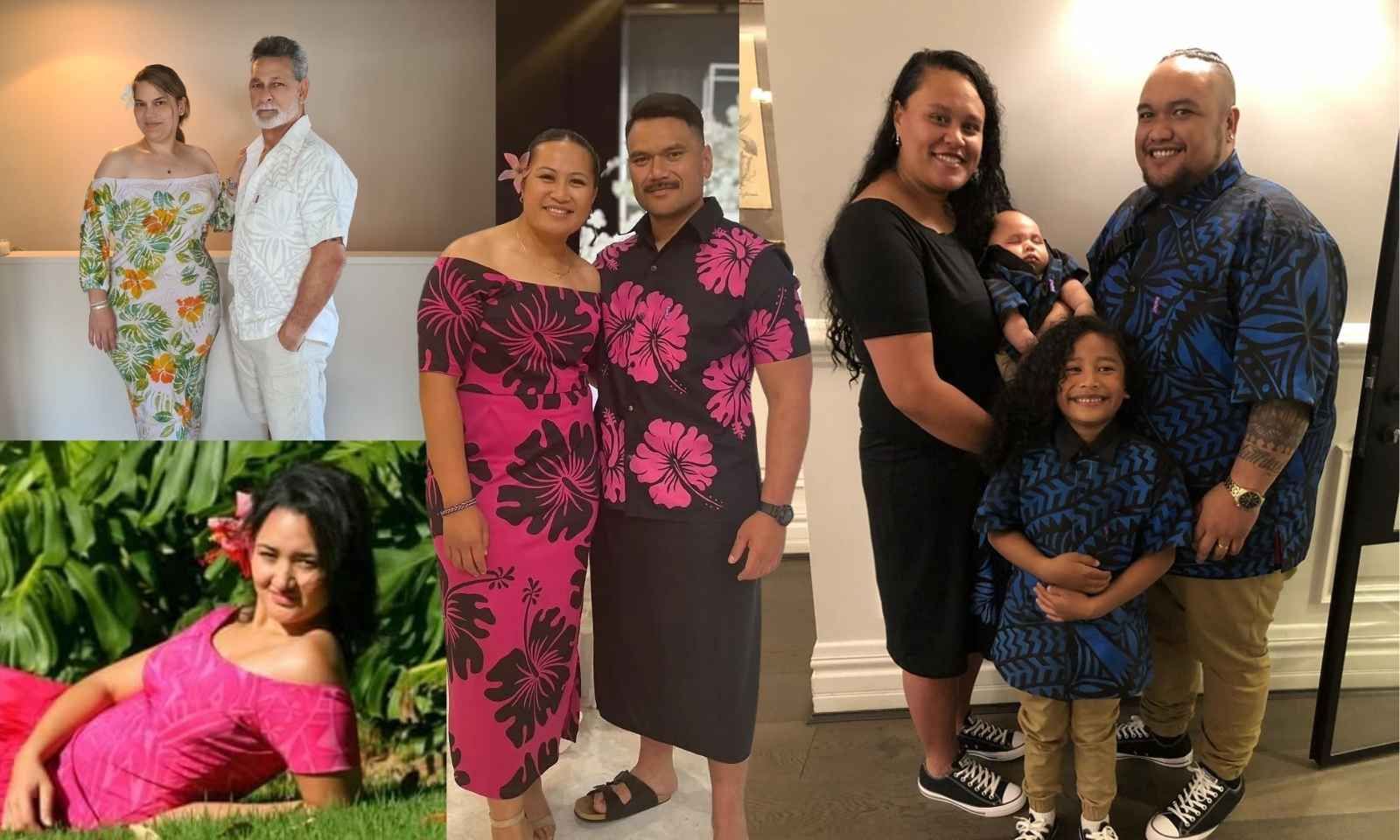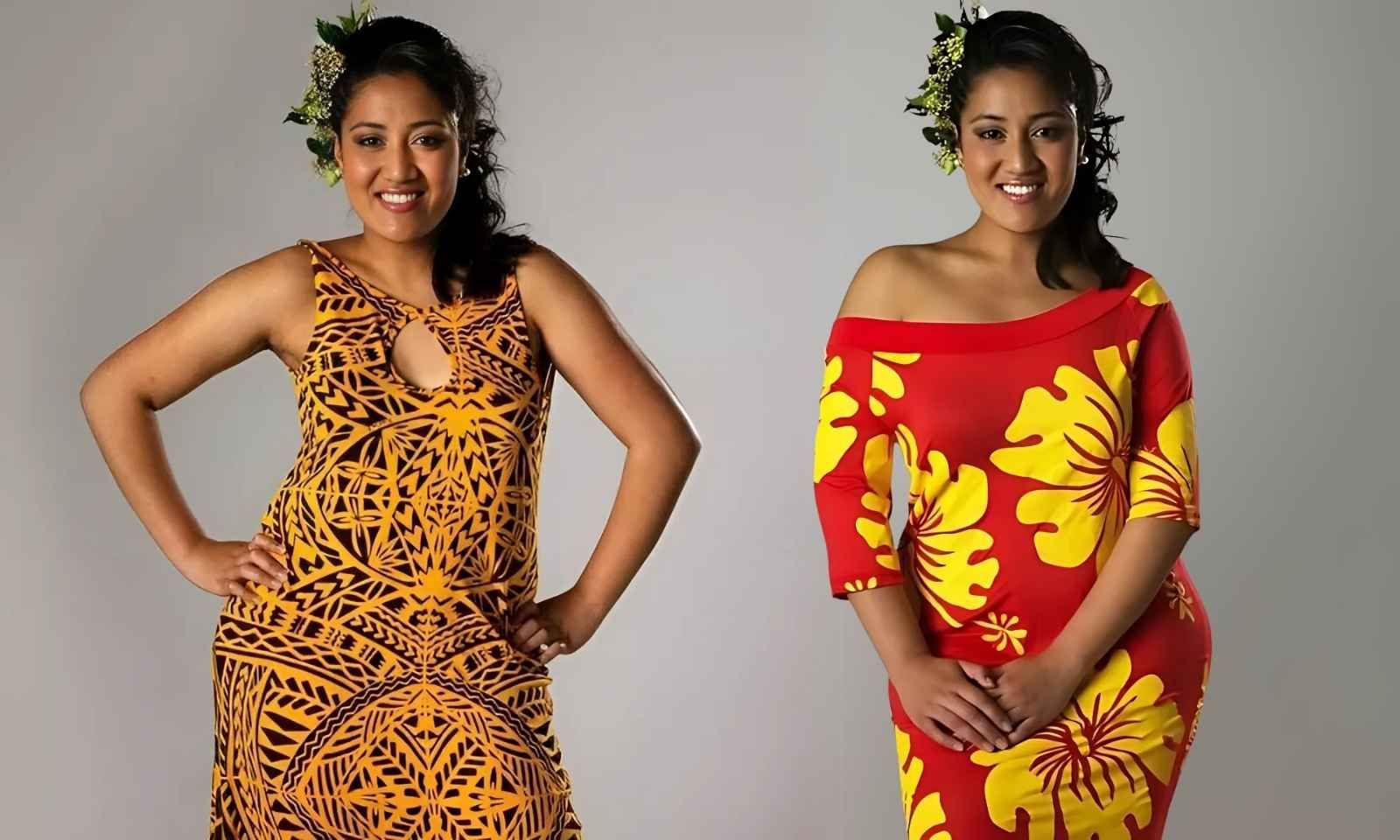

The family behind Kara’s.
Photo /Supplied.
Fashion label Kara’s promotes Pacific and family values
Kara’s director Penina Schmidt reflects on her mother’s vision, family commitment, and the unique challenges of running a boutique Pacific business.


Digital Lifeline: New app helps Sāmoans abroad reclaim their heritage

Northern Mariana Islands smash regional barriers with historic Auckland bronze

Sāmoa tightens control of district funds with new seizure powers

Tyrun re-imagines Niuean love in smooth new R&B single ‘Fila’

Digital Lifeline: New app helps Sāmoans abroad reclaim their heritage

Northern Mariana Islands smash regional barriers with historic Auckland bronze

Sāmoa tightens control of district funds with new seizure powers
Penina Schmidt credits her mother as the driving force behind Kara's, a boutique fashion brand born in Sāmoa that now operates as a bespoke store in Auckland’s Papatoetoe.
Schmidt, the managing director, says they are well known for their hand-printed garments, and most of their work involves designing one-off pieces, but their mother’s legacy underpins their values.
The brand began in 1987 as a small boutique importing garments in Pesega, Sāmoa, founded by Schmidt’s mother, Karameli.
In the late 1980s, Kara's started producing bespoke puletasi (dress) after first selling imports from Hawaii and the United States. Eventually, they moved operations around Sāmoa, from Pesega to Toilolo Village, and later to Apia - expanding their team of seamstresses.
In 2002, Kara's moved to New Zealand, supported by Va’atuitui Apete Meredith, now Sāmoa’s Trade Commissioner.
“We were right slapped in the middle of Ōtāhuhu Town Centre,” Schmidt recalled, saying her older sister, Kara, initially managed the new boutique.
Once their decade-long lease in Ōtāhuhu ended, the business relocated to Papatoetoe, where it still operates today.
In 2013, Kara's celebrated its 30th anniversary by launching an additional product line, although the core of its success still lies in producing one-of-a-kind garments.
Schmidt says her mother remains a central figure in all major decisions, adding that Karameli’s faith and generosity are deeply embedded in their operation.

“At least they look nice and they can go attend the event and know that they feel good, that they're wearing this beautiful ofu” - Karameli. Photo /Facebook/Karas.
“I think over a year, my Mum will give out probably 15 per cent of our profit to people because she would rather give the stuff for free to people,” Schmidt said.
“I don't think any other business does what she does where people can come in and be like, ‘Mama, I need a dress for today, but I don't get paid until next week’.
Schmidt, along with her two sisters, holds various degrees in education, finance, business, and management.
She said they used to question their mother’s approach but have since learned to embrace it.
“Mum was like, ‘That's not what Kara's is all about. Even if I give it for free, at least they look nice and they can go attend the event and know that they feel good, that they're wearing this beautiful ofu (clothing) - that’s all that matters to me’.

Designed by Kara’s. Photo /Facebook/Karas.
“I feel like I've lived through it, and now I'm doing the same thing, whether I know it or not.”
Work-life balance
Since 2014, Kara's has functioned without external employees, relying solely on family members to handle sewing, design, and printing.
Schmidt said keeping their work exclusive meant their craftsmanship was personal and fostered a closer bond with the community.
Kara’s mother also chose to remain self-funded for over four decades and valued creative autonomy and face-to-face interaction with customers over being “pigeonholed” by funding criteria.
Reality of business
For Schmidt, the boutique’s continued operation is more than a source of income; it is a testament to its deep Pasifika roots and passion for serving the community.
The three sisters continue to support their mother’s work, contributing skills in marketing, design, and accounting to keep the business thriving.
Schmidt said Kara’s secret to success is finding a balance between Pacific values and financial reality.
“There were a couple of times where my mother had to top up our home, but there was never a day that my mother would say, ‘We don't have money’.
“It might've happened in the background, the struggles that we as children did not see, but there was never a moment that us girls would go to school without any lunch.
“The business has gone small or really boutique, in having no employees, but it's been managing independently - thank God for that.”